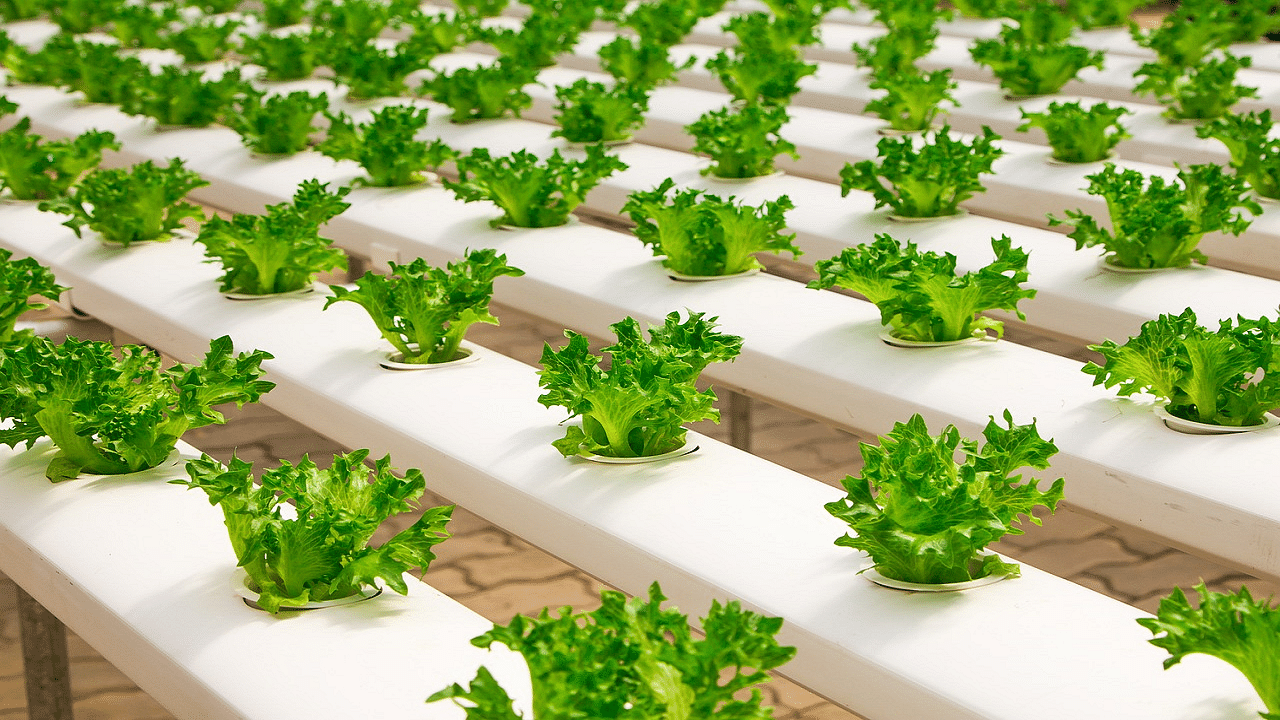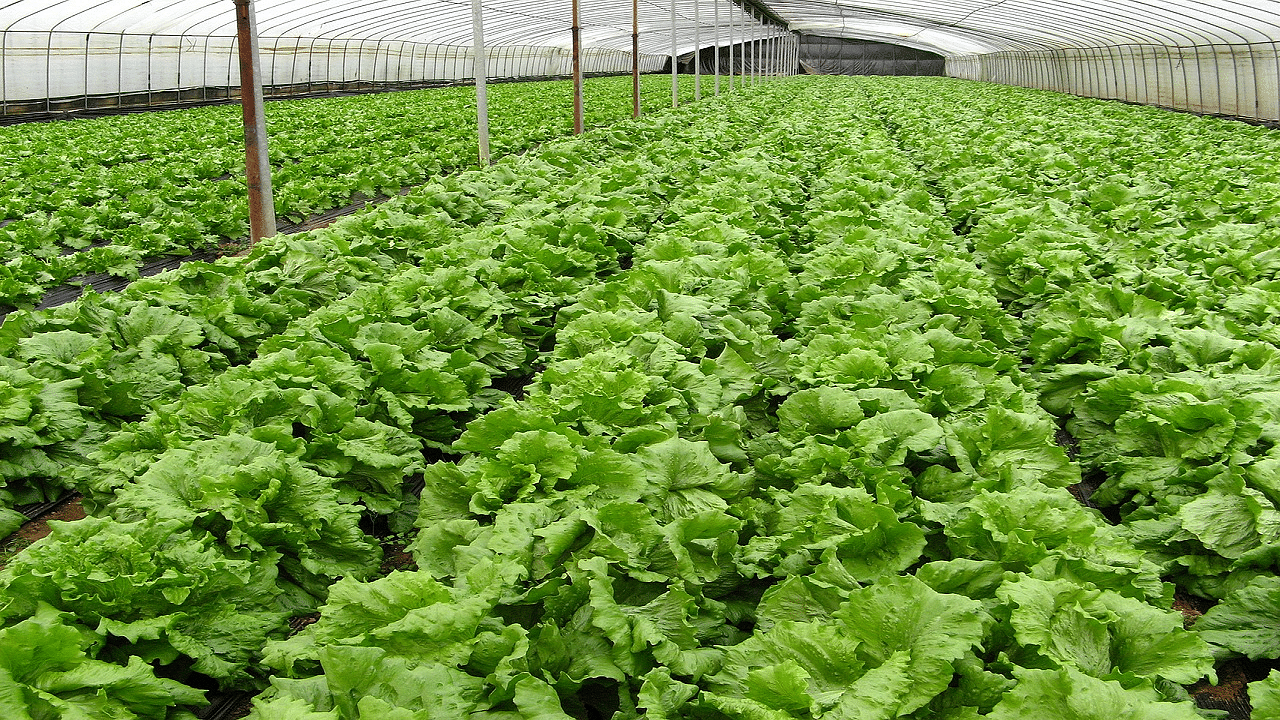

The demand for organic farming is increasing all over the world and so in India. Here is a brief discussion of the demand for organic farming in India, the importance of organic farming and more.
Vivek Singh Updated 30 June, 2023 3:16 PM IST
The concept of 'organic' was introduced by Northbourne in 1940 through his book titled 'Look to the Land'. Over the years, organic farming has witnessed a surge in popularity as a sustainable cultivation method. It has emerged as a preferred choice for both consumers and farmers alike. Opting for organically grown foods has become an integral part of adopting a greener and environmentally conscious lifestyle.
The Significance of Organic Farming In today's world, the importance of food quality and safety has become a paramount concern for the general public. With increasing environmental awareness and the prevalence of food hazards like dioxins, bovine spongiform encephalopathy, and bacterial contamination, consumer trust in food quality has significantly diminished over the past few decades. The intensive methods used in conventional farming can contribute to contamination within the food chain. As a result, consumers are actively seeking safer and more ecologically friendly food options that are produced authentically through local systems. It is believed that organically grown food and food products can meet these demands. The Organic Farming Process Organic farming and food processing practices encompass a wide range of techniques that aim to develop socially, ecologically, and economically sustainable food production systems. The International Federation of Organic Agriculture Movements (IFOAM) has put forward four fundamental principles of organic farming: health, ecology, fairness, and care. These principles guide the main practices and principles of organic food production.

The core principles and practices of organic farming focus on nurturing and enhancing biological cycles within the farming system, preserving and enriching the fertility of the soil, reducing various forms of pollution, abstaining from the use of pesticides and synthetic fertilizers, conserving genetic diversity in food crops, considering the broader socio-ecological impact of food production, and producing high-quality food in sufficient quantities. By adhering to these principles, organic farming endeavors to create a more sustainable and harmonious relationship between agriculture and the environment. It prioritizes the preservation of natural resources, the promotion of biodiversity, and the production of wholesome and nutritious food that not only safeguards consumer health but also contributes to the overall well-being of our planet. Principles Guiding Organic Farming In accordance with the National Organic Program established by the USDA Organic Food Production Act, specific requirements are set for both crop cultivation and animal husbandry in organic agriculture. To be certified as organic, crops must be grown in fields free from synthetic pesticides, chemical fertilizers, and herbicides for a period of three years before harvesting, with an adequate buffer zone to minimize contamination from neighboring farms. The use of genetically engineered products, sewage sludge, and ionizing radiation is strictly prohibited. Maintaining soil fertility and nutrient content is primarily achieved through sustainable farming practices, including crop rotation and the use of cover crops enriched with animal and plant waste manures. Pests, diseases, and weeds are predominantly controlled through physical and biological means, avoiding the use of herbicides and synthetic pesticides. In the case of organic livestock, they must be raised without the routine application of growth hormones or antibiotics, and they should have sufficient access to the outdoors. Emphasis is placed on preventive health practices, such as regular vaccination and supplementation of vitamins and minerals. By adhering to these principles, organic farming aims to cultivate crops and raise livestock in a manner that is environmentally friendly, avoids harmful chemicals, and promotes the well-being of both the ecosystem and consumers. The principles serve as a guide to ensure that organic farming practices align with the core values of sustainability, animal welfare, and the production of wholesome and naturally grown food. Different Approaches to Organic Farming Organic farming practices in India can be classified into two main types, each with its own distinct characteristics. Let's explore these two approaches to organic farming in more detail.
In pure organic farming, strict adherence to avoiding any unnatural chemicals is followed. This means that fertilizers and pesticides used in this method are derived solely from natural sources. This form of organic farming is often considered the purest approach, as it prioritizes a complete absence of synthetic substances. Pure organic farming has shown to be highly effective in achieving high productivity while maintaining the principles of organic agriculture.
Integrated organic farming takes a more comprehensive approach by incorporating two key components: integrated nutrient management and integrated pest management. Integrated nutrient management involves optimizing the use of organic inputs, such as compost and manure, alongside appropriate crop rotations and intercropping techniques to enhance soil fertility and nutrient availability. Integrated pest management focuses on employing a combination of natural pest control methods, such as beneficial insects, crop diversification, and cultural practices, to manage pest populations effectively.
By integrating nutrient management and pest management strategies, integrated organic farming aims to create a harmonious and balanced agricultural system that minimizes external inputs and maximizes ecological sustainability.
Organic Farming in India is getting popularity every year and farmers/individuals/retired persons from different states are successfully adopting organic farming…
Both pure organic farming and integrated organic farming have their merits and contribute to the larger goal of sustainable agriculture. The choice of approach often depends on various factors, including the specific farming context, farmer preferences, and the desired outcomes in terms of productivity and ecological impact. Ultimately, the goal of both approaches is to produce healthy, nutritious food while minimizing harm to the environment and promoting the well-being of farmers and consumers alike.
The State of Organic Farming in India
Organic farming is still in its early stages of development in India. As of March 2020, the Union Ministry of Agriculture and Farmers' Welfare reported that approximately 2.78 million hectares of farmland in the country were under organic cultivation. This accounts for only two percent of the total net sown area, which stands at 140.1 million hectares. Notably, a few states have taken significant strides in promoting organic farming, with a large portion of the organic cultivation area concentrated in these regions.
Leading the way is Madhya Pradesh, with 0.76 million hectares of land dedicated to organic cultivation. This represents over 27 percent of India's total organic farming area. The states of Rajasthan and Maharashtra also make substantial contributions, accounting for a significant portion of the overall organic cultivation area. In fact, the top 10 states collectively cover approximately 80 percent of the total organic farming area in the country.
It is worth mentioning that Sikkim stands out as the only Indian state to have achieved full organic status. Although India's organic farming area is relatively small compared to the total agricultural land, the country holds the distinction of having the highest number of organic farmers. As of March 2020, there were over 1.9 million organic farmers in India, comprising 1.3 percent of the total 146 million agricultural landholders.
While organic farming in India is still in its early stages, there is evident progress being made. The focus on increasing the organic cultivation area and the number of organic farmers is a positive sign for the future of sustainable agriculture in the country. With continued efforts and support, India has the potential to further expand its organic farming practices, fostering a more environmentally friendly and resilient agricultural sector.
The Future Outlook for Organic Farming in India
India, being an agrarian nation, heavily relies on farming and related activities, with 67% of its population and 55% of its workforce engaged in the agricultural sector. Agriculture plays a vital role in meeting the basic needs of the country's rapidly growing population, accounting for 30% of the total income. Organic farming, deeply rooted in India's traditional practices, has been prevalent in numerous rural farming communities for centuries.
However, the advent of modern techniques and the increasing population burden led to a shift towards conventional farming methods, which involve the use of synthetic fertilizers, chemical pesticides, and genetic modification techniques.
In recent times, there has been a noticeable surge in demand for organically grown produce, even in developing countries like India. People are now more aware of the importance of food safety and quality, and they recognize the significant impact of organic farming on soil health by avoiding the use of chemical pesticides. Additionally, organic cultivation holds immense potential for income generation. India is blessed with diverse natural resources that provide organic nutrients to the soil, making it conducive to organic farming practices.
As awareness about the benefits of organic farming continues to grow, there is a promising future for the organic agriculture sector in India. More farmers and communities are embracing organic farming methods, driven by consumer demand for healthier and environmentally friendly food options. The availability of natural resources and the cultural heritage of organic practices in India provide a strong foundation for the expansion and success of organic farming in the country.
With the potential to improve soil health, ensure food safety, and generate sustainable income, organic farming holds great promise for India's agricultural sector. By embracing organic practices and promoting their adoption on a larger scale, India can pave the way for a more sustainable and resilient future in agriculture, benefiting both farmers and consumers alike.